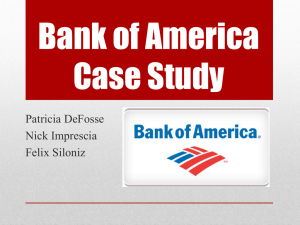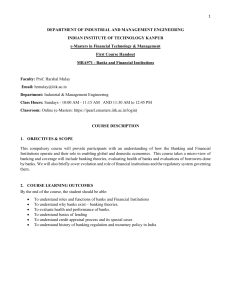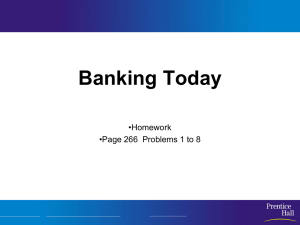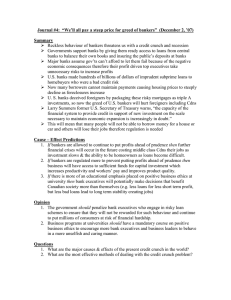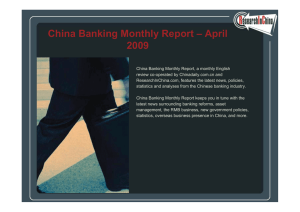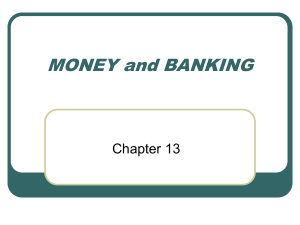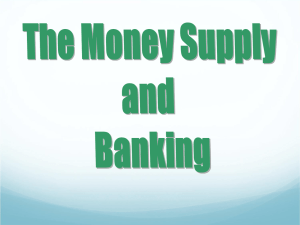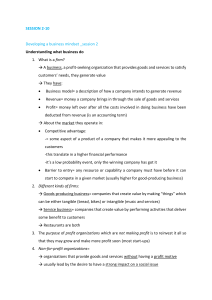THE EXCHANGE RATE EXPOSURE OF BANKING INSTITUTIONS Jong-Wook Reem, Ph.D.
advertisement
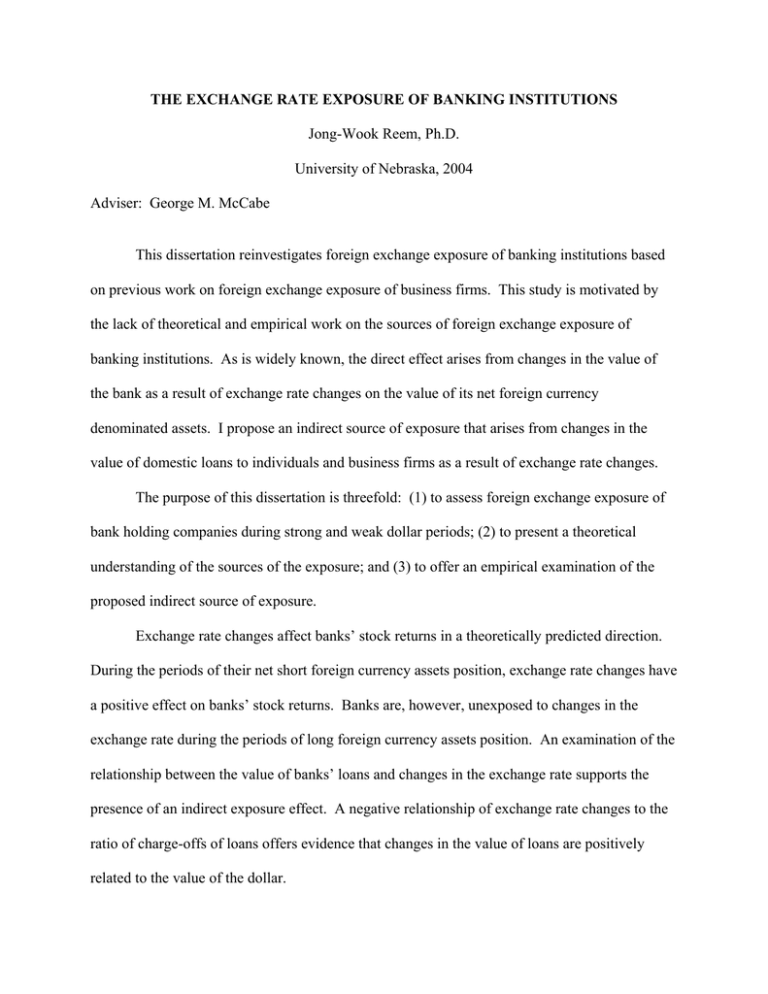
THE EXCHANGE RATE EXPOSURE OF BANKING INSTITUTIONS Jong-Wook Reem, Ph.D. University of Nebraska, 2004 Adviser: George M. McCabe This dissertation reinvestigates foreign exchange exposure of banking institutions based on previous work on foreign exchange exposure of business firms. This study is motivated by the lack of theoretical and empirical work on the sources of foreign exchange exposure of banking institutions. As is widely known, the direct effect arises from changes in the value of the bank as a result of exchange rate changes on the value of its net foreign currency denominated assets. I propose an indirect source of exposure that arises from changes in the value of domestic loans to individuals and business firms as a result of exchange rate changes. The purpose of this dissertation is threefold: (1) to assess foreign exchange exposure of bank holding companies during strong and weak dollar periods; (2) to present a theoretical understanding of the sources of the exposure; and (3) to offer an empirical examination of the proposed indirect source of exposure. Exchange rate changes affect banks’ stock returns in a theoretically predicted direction. During the periods of their net short foreign currency assets position, exchange rate changes have a positive effect on banks’ stock returns. Banks are, however, unexposed to changes in the exchange rate during the periods of long foreign currency assets position. An examination of the relationship between the value of banks’ loans and changes in the exchange rate supports the presence of an indirect exposure effect. A negative relationship of exchange rate changes to the ratio of charge-offs of loans offers evidence that changes in the value of loans are positively related to the value of the dollar.


